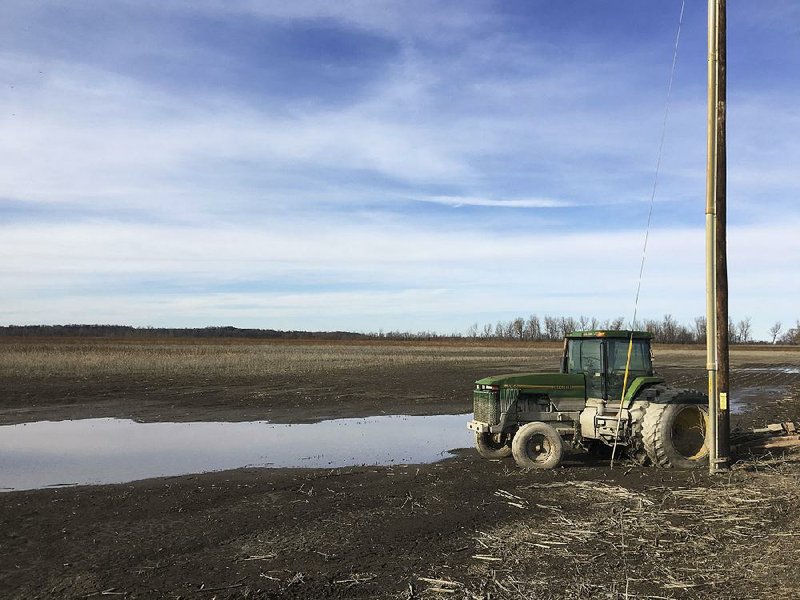Weather extremes, market fluctuations and regulation changes are just a handful of factors that can make farm life stressful.
Those stressors are on top of the everyday risks farmers and ranchers face in working with livestock and large equipment. Farming is ranked among the 10 occupations with the most fatalities in the United States, according to the Bureau of Labor Statistics, with nearly 25 fatal injuries per 100,000 workers in 2018.
"Some of the pressures that occur in the agricultural industry are unique and beyond a person's control, which can be difficult and lead to feelings of frustration," said Rebecca Simon, extension program associate-family and consumer science, for the University of Arkansas System Division of Agriculture.
Simon knows this firsthand. She and her husband, Kenny, operate a farm in addition to their jobs working for the Cooperative Extension Service.
"Some of these pressures are beyond a person's immediate control," she said. "Because of this pattern, focusing on what you can do to control how you respond to stressful conditions is important."
For example, unpredictable changes in markets can multiply stress on family and farm finances. These stresses also can ripple into other areas of life causing conflict within families, with vendors or customers and friends.
As an educator, Simon works across the state of Arkansas, helping farm families understand the factors that can tug them in different directions, using the "Managing Rural Stress Model."
"This model is designed to provide farm families with a process for thinking about the different stressors they may experience and strategies for managing them more effectively," Simon said.
Managing Rural Stress Model path enables farm families to turn what appears to be a mountain to climb into steps that are easier to process. These steps lead to reflection that can help families identify and use effective resources and strategies.
The five steps are: Assess needs and impacts, identify and access resources, pursue good-quality decisions, connect with sources of support and use effective coping strategies.
COPING MECHANISMS
Simon said that among simple steps farm families can use to cope include shifting focus from worrying to problem-solving, paying attention to things accomplished rather than things that have gone unfinished and setting realistic goals and expectations daily.
The Cooperative Extension Service has many resources to help individuals and families cope with stress. Be sure to contact a county extension office or visit https://www.uaex.edu/health-living/personal-family-well-being/.
To learn about extension and research programs in Arkansas, visit https://division.uaex.edu/.
Follow the agency on Twitter at @AgInArk, @uaex_edu or @ArkAgResearch.
Mary Hightower is with the University of Arkansas System Division of Agriculture.
